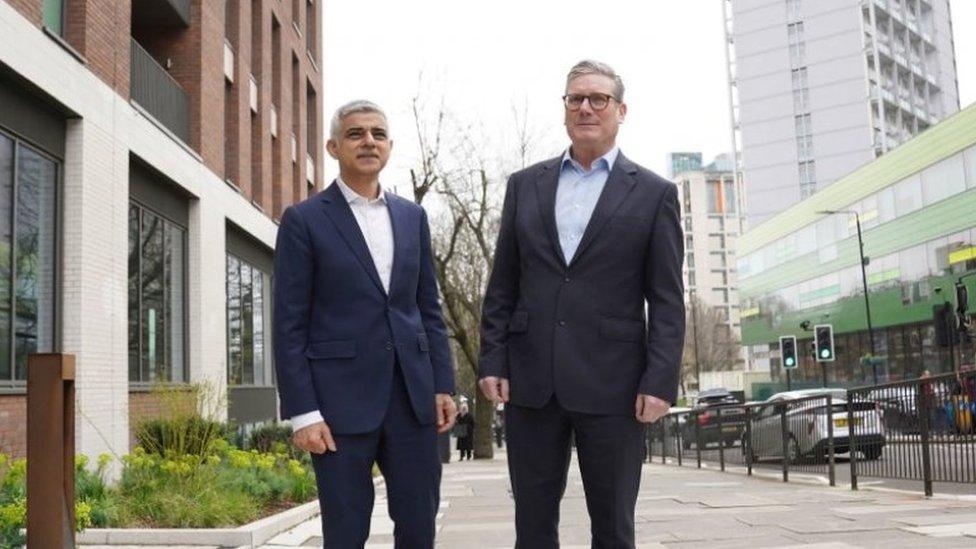London mayor elections: Conservative Susan Hall pledges to scrap expanded Ulez
- Published
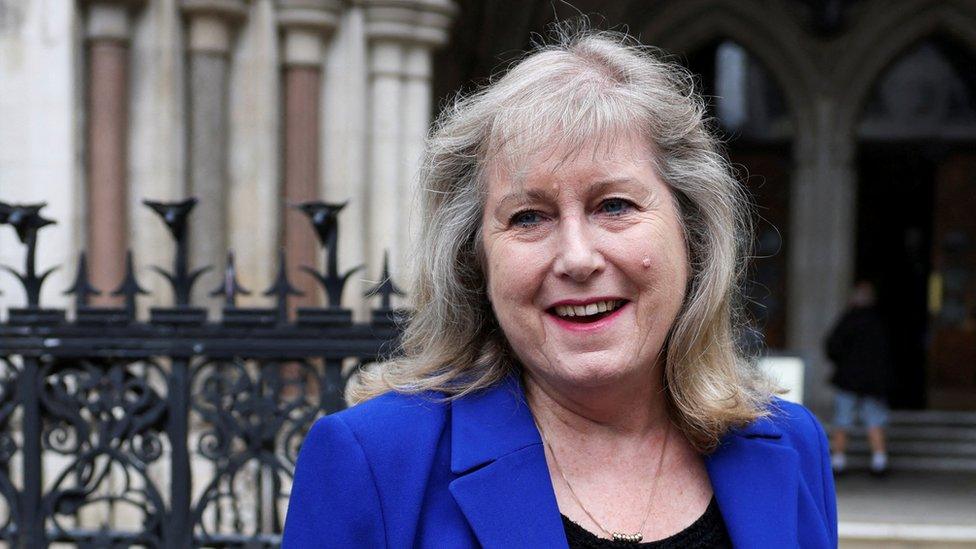
Susan Hall has pledged to "stop the war on motorists" if elected
The Conservative Party will scrap the Ulez (Ultra Low Emissions Zone) expansion and halt pay-per-mile plans, according to its mayoral candidate.
Speaking at her manifesto launch on Monday, Susan Hall said she would cease enforcement of the expanded Ulez on day one of her mayoralty.
She added that she would "stop the war on motorists" by removing some low traffic neighbourhoods (LTNs).
Ms Hall is one of 13 candidates in the election that will take place on 2 May.
At a local garage in Bexley, south-east London, Ms Hall said she was focused on "getting London moving" removing 20mph zones.
She also pledged to extend the Night Tube on four more lines and reinstate the Freedom Pass and 60+ Oyster Card in peak morning hours.
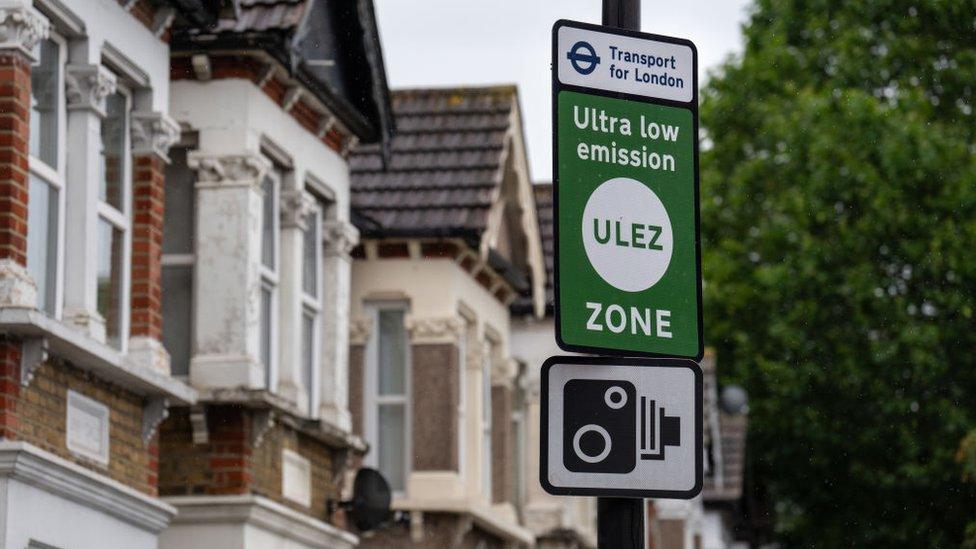
Susan Hall says she will scrap the Ulez expansion on day one if elected
Labour candidate Sadiq Khan has ruled out pay-per-mile road charges in his next term if elected but had previously said he was looking at creating a new charge to replace the separate Ulez charge, congestion charge and tolls at the Blackwall and new Silvertown tunnels.
The Green Party candidate, Zoe Garbett, said she would consult people in the first year on "pay-per-mile" road-charging, where motorists would pay according to how far they drive and at what time, as well as the emissions of their vehicles.
Ms Hall said she was committed to "promoting more green choices for Londoners to provide a realistic path to net zero carbon emissions".
She also pledged to increase the number of electric vehicle charging points, expand tree planting and take targeted action to reduce air pollution.
As well as transport, Ms Hall's other focus was on making London safer.
She has pledged to recruit 1,500 more police officers and setting up two new police bases in every borough in order to "bring back borough-based policing".
Mr Khan has promised to recruit 1,300 additional officers, while the Liberal Democrat candidate Rob Blackie said he will recruit 500 special constables and bring 300 officers back on the frontline.
London has a record number of almost 34,000 police officers, backed by 1,300 community support officers, 1,300 specials and almost 11,000 staff in administrative roles.
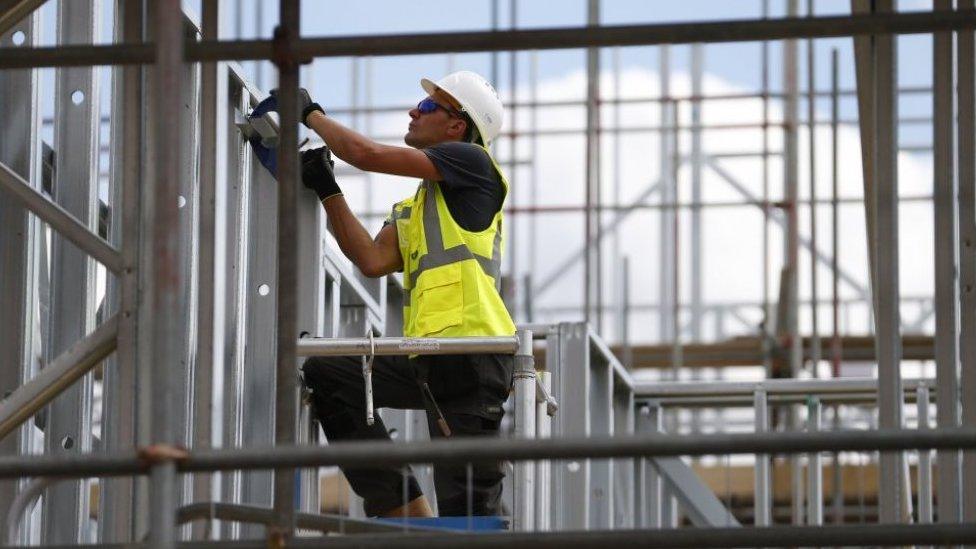
All candidates have pledged to build more affordable houses in London
On housing, Ms Hall said she was committed to building more family homes that Londoners can afford, "delivering purpose-built rented homes and an increase the supply of homes for ownership, including shared ownership schemes".
She said she would focus on high-density, low-rise homes and tower blocks will only be permitted "where it is appropriate".
Mr Khan launched his manifesto earlier this month with a focus on housing.
He said data showed 23,000 council homes - those at between a third and half of market rents - had been started, while 8,079 were completed between 2018 and 2023.
He said, if re-elected, he would double this figure and commit to completing the building of 40,000 council homes by the end of the decade - although a third term would only run until 2028.
However, Ms Hall said Sadiq Khan was "trying to pull the wool over people's eyes, by pledging a target that mostly consists of existing homes or those already started".

Listen to the best of BBC Radio London on Sounds and follow BBC London on Facebook, external, X, external and Instagram, external. Send your story ideas to hellobbclondon@bbc.co.uk, external
- Published16 April 2024
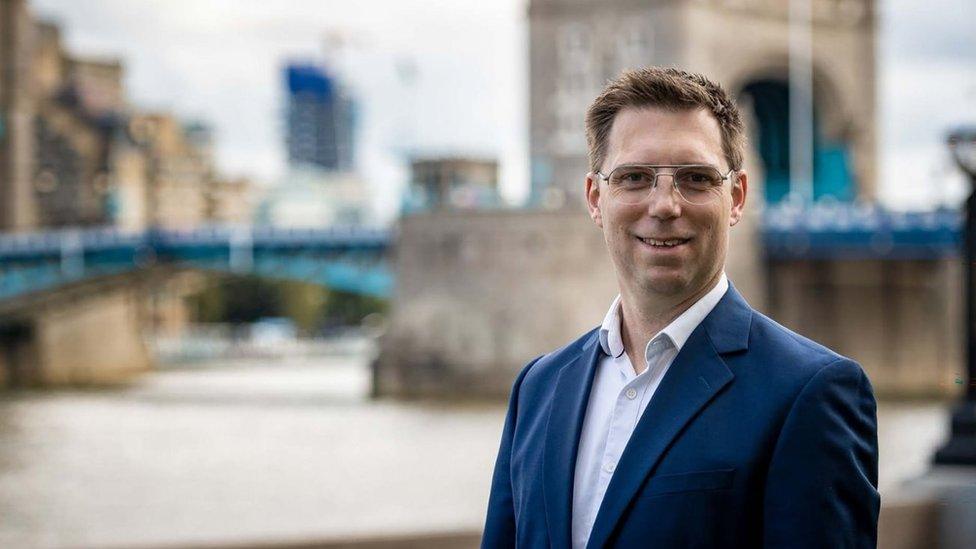
- Published8 April 2024
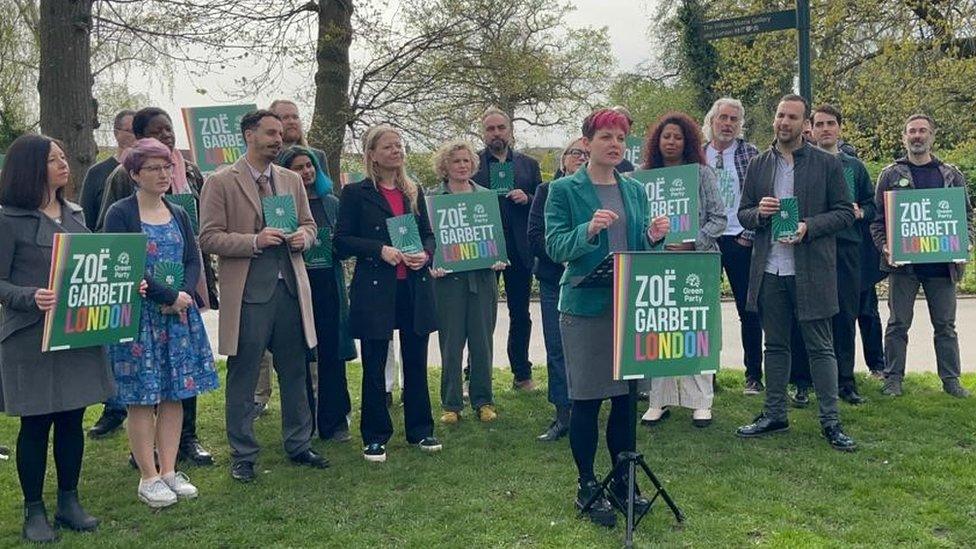
- Published18 March 2024
